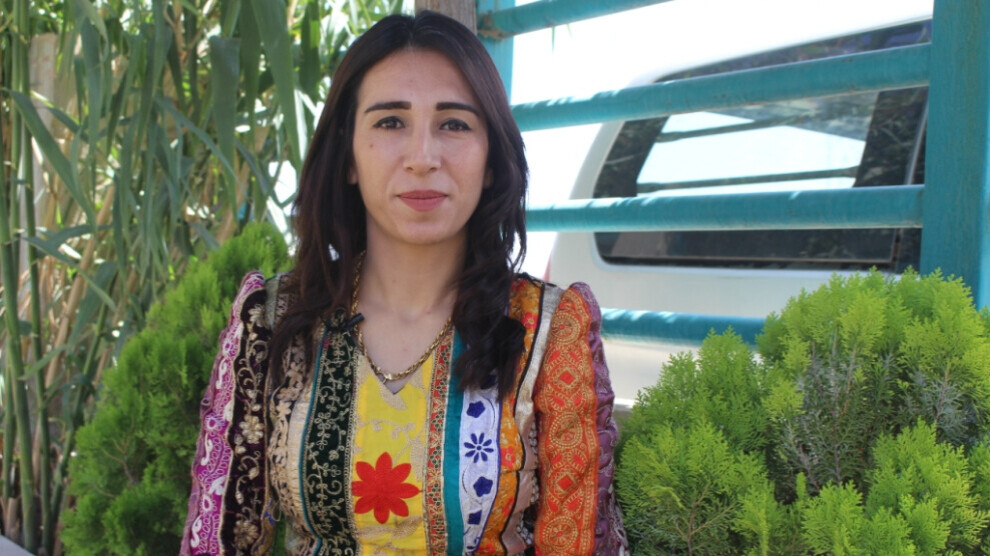Democratic nation project gives priority to education
The democratic nation project, aiming to build a democratic society in NE Syria, gives priority to education. Since the declaration of the Autonomous Administration of North and East Syria, many language academies, schools and institutes have been opene

RONÎDA HACÎ
Hasakah- In an interview with NuJINHA, Jînda Ehmê, manager of the Kurdish Language Institute in Hasakah Canton, spoke about their activities based on the democratic nation philosophy with the coordination of the Autonomous Administration of North and East Syria (AANES).
Noting that, many language academies, schools and institutes have been opened in North and East Syria since the declaration of the AANES, Jînda Ehmê said that the Education and Training Board is one of the achievements of the revolution.
“The Education and Training Board plays an important role in preserving Kurdish language and culture. People have the right to practice their mother language and culture. Language and culture are very important in the period we are going through today. Therefore, we give priority to education in our mother language. The Education and Training Board provides education in Kurdish. Now, people can learn their own mother language. Students have a high-level language and this is a revolution in itself.”
Pointing out that raising individuals, who can serve their society is very important, Jînda Ehmê said, “We provide education based on language, culture and the philosophy of democratic nation. Mothers play an important role in teaching their language to their children at home. Children learn many behaviors from their parents until they become adolescence. For this reason, mothers are the first teachers of children. Children learn their native language from their mothers.”
‘90 percent of teachers are women’
90 percent of teachers working for the language academies, schools and institutes of the Education and Training Board are women. Recalling the times when the Baath regime banned Kurdish in schools, Jînda Ehmê said:
“Mothers taught their children Kurdish when the Baath regime banned Kurdish in schools because they knew what the attacks on their mother language meant. After the July 19 revolution, many Kurdish academies, schools and institutes were opened in order to preserve and improve the Kurdish language.”
‘Our struggle to build a free society based on the democratic nation project continues’
After the revolution in Rojava, many universities have been opened in North and East Syria. The students graduating from these universities work for the institutions of the AANES as experts. “This is a source of pride for us. They promote our language, culture and philosophy. Our struggle to build a free and democratic society based on the democratic nation project continues. Everyone should give great importance to the values of the revolution by protecting these achievements.”
